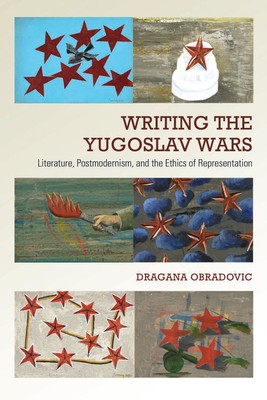
- We will send in 10–14 business days.
- Author: Dragana Obradovic
- Publisher: University of Toronto Press
- ISBN-10: 1442629541
- ISBN-13: 9781442629547
- Format: 16.3 x 23.4 x 2 cm, hardcover
- Language: English
- SAVE -10% with code: EXTRA
Reviews
Description
In Writing the Yugoslav Wars, Dragana Obradovic analyses how the Yugoslav wars of secession helped shape the region's literary culture. Obradovic argues that the crisis of the country's disintegration posed an ethical challenge to self-identified postmodernists. This book takes a transnational approach to literatures of the former Yugoslavia that have been, since the 1990s, studied separately, in line with geopolitical divisions. This post-socialist conflict was one of the moments that reshaped postmodernism for both local and international thinkers, much in the same way modernism was shaped by World War I and the advent of mechanized warfare.
EXTRA 10 % discount with code: EXTRA
The promotion ends in 11d.04:38:57
The discount code is valid when purchasing from 10 €. Discounts do not stack.
- Author: Dragana Obradovic
- Publisher: University of Toronto Press
- ISBN-10: 1442629541
- ISBN-13: 9781442629547
- Format: 16.3 x 23.4 x 2 cm, hardcover
- Language: English English
In Writing the Yugoslav Wars, Dragana Obradovic analyses how the Yugoslav wars of secession helped shape the region's literary culture. Obradovic argues that the crisis of the country's disintegration posed an ethical challenge to self-identified postmodernists. This book takes a transnational approach to literatures of the former Yugoslavia that have been, since the 1990s, studied separately, in line with geopolitical divisions. This post-socialist conflict was one of the moments that reshaped postmodernism for both local and international thinkers, much in the same way modernism was shaped by World War I and the advent of mechanized warfare.


Reviews